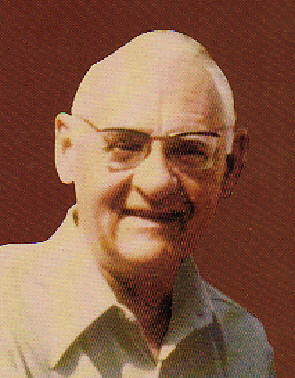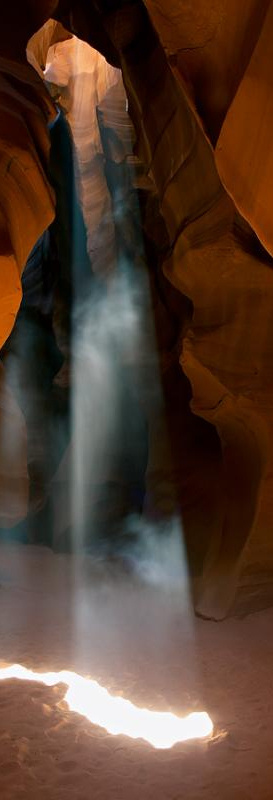Yesterday I just finished reading a little book, Credo: Meditations on the Apostles’ Creed, by Hans Urs von Balthasar (1905-1988), rather famous Swiss theologian of the Roman Catholic persuasion.� It is among the last of his writings, and is very simple.� Below are some quite fine and noble things that he said, but I would not want to give a wrong impression: these are what I considered the high points of the book, and some of them were quite high: but alas that was not all he said.� He says some unfortunate things about Mary, for instance (pp.70,83), and seems very preoccupied with the relation of the sexes to the Trinity (e.g, pp.30,78): his views on the one and the many, intra-Trinitarian relationships, and certain of the divine attributes also seem somewhat substandard to me, as well as the things one would expect from a Roman Catholic: a certain lack of understanding with regard to the church, the judgment, etc. (see, e.g., problem passages on pp.29,48,51,63,71).� I found his stress on the individual rather interesting, given the current buzz about community (pp.83-86).
Anyway, the upshot of all of this is, that I am preserving what stood out as the highlights of this book (borrowed from the Marion County Library and shortly to be returned), but what is below is by no means a full picture or an at all unqualified endorsement of this man’s theological writings.
…if God is not in himself love, then, in order to be love, he would need the world, and that would spell the end of his divinity�or we would have to characterize ourselves as part of God and thus ascribe necessity to ourselves. (p.37)
Why, then is there a world at all?
As a Christian, one can venture an initial answer (nobody else can do so): If three must exist within God himself (in order that he can be called �love�) a One and an Other and their Union, then it is �very good� that the Other exists, then the world is not, as in the rest of the monotheisms, a fall from the One. (pp.38,39)
The �Other� is, in the first instance, the Son, and therefore other beings can be created only in the Son (�without him was not anything made that was made,� Jn 1:3). Hence, if the world is to be �risked� and judged conclusively to be �very good,� it is the Son who is guarantor for the success of the venture. (p.39)
Yet still we acknowledge in faith that he does incarnate himself, does not himself take hold of the human nature that he will inhabit, but allows himself to be conveyed, as the �seed� of the Father, into the virginal womb by the Holy Spirit. But this means that the occasion of his Incarnation is already the beginning of his obedience. Theologians have very often claimed the opposite, on the ground that the union of the human and the divine natures occurs solely in the Son as the Second Person in the Divinity.
However, the creed describes not a �taking of something to oneself,� but an �acquiescing in something that happens to one.� In this pretemporal obedience, the Son still differs profoundly from naturally engendered human beings, who are not asked whether they wish to come into being or not; the Son permits, in full consciousness and with full consent to the divine plan for redemption, himself to be used as the Father wishes. But already here, he does so in the Holy Spirit of obedience, through which he will atone for the disobedience of Adam and �infiltrate� it. (pp.45,46)
For us humans, that will mean that our obedience, which we owe to our Creator and Lord and to all his direct and indirect commands, can be, in Jesus Christ, and even must be, an expression of our love; so that any love of God or other human beings which excludes obedience, or wishes to get beyond it, does not at all deserve the name love. (pp.46,47)
…[Of the death of Christ, that He] died with the surrender of his Spirit into the hands of the absent…. (p.52)
Thus, in the communion of saints in God, the adventure of creative, imaginative love are intensified beyond all counting. Life in God becomes an absolute miracle. Nothing is given in a concluding way, the act of giving goes on unfolding boundlessly. The heavenly are therefore always ready to help in cases of earthly need�certainly through eternal, perhaps also through temporal, gifts�so as to rekindle our courage to strive, despite everything, toward the life everlasting, and to grant us a foretaste of that which awaits us. And if we are given to suffer, deeper shafts are sunk in us than we thought we could contain, depths destined to become, in the life everlasting, reservoirs of greater happiness, wells still more productive. Wells that flow forth of themselves, gratis; for in the life everylasting [sic], all is gratis. The words �without money,� �for no payment,� when it is a matter of God’s gifts, run through the whole of the Bible (Is 55:1; Sir 51:52; Mt 10:8; Rev 21:6; 22:17). This �gratis� is the innermost essence of divine love, which has no other ground than itself; and by it, everything that exists in eternal life with God is determined. And precisely because this love is without any ground, its depths cannot be plumbed; one never gets to the bottom of it, it remains deeper than anything that can be grounded or �put into concepts.� Hence, Paul quite accurately says: �Know the love…which surpasses knowledge,� in order to �be filled with all the fulness of God� Eph 3:19).� (pp.103, 104)







2 replies on “Hans Urs von Balthasar”
Quite a cull from the Marion County Library. From these quotes, I’d guess he’s properly proportioned on God’s love and God’s sovereignty.
Well, I think he takes love to be much more a controlling idea; but as those quotes didn’t seem to me worth keeping I didn’t type them out.